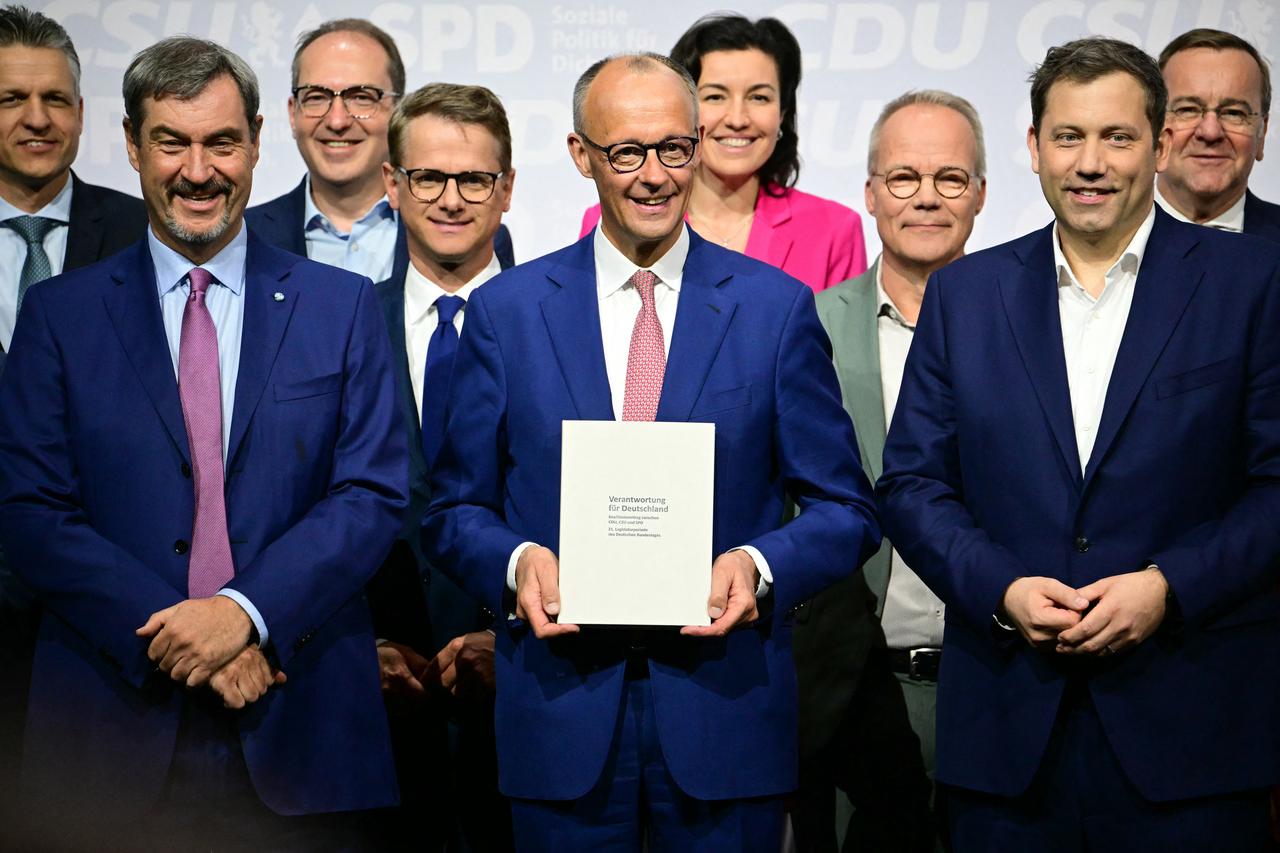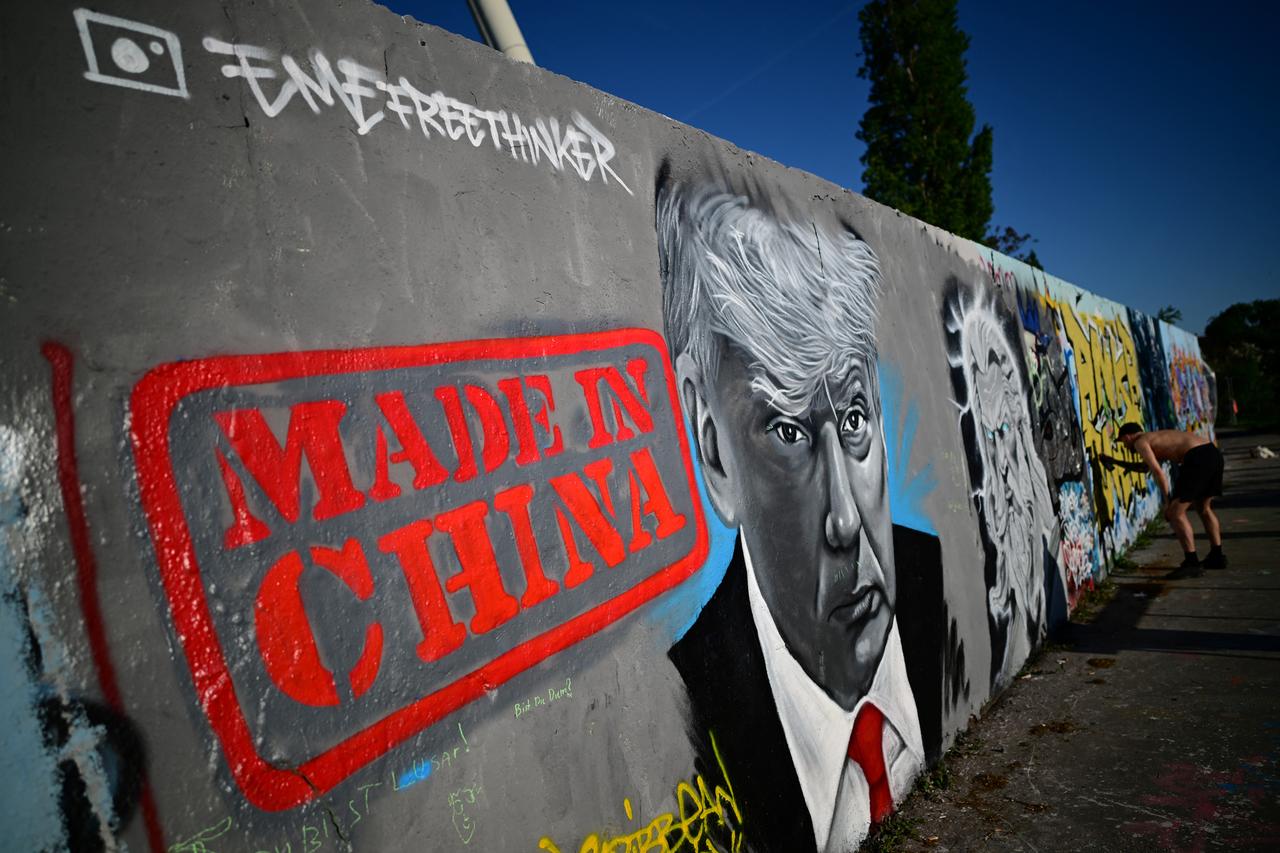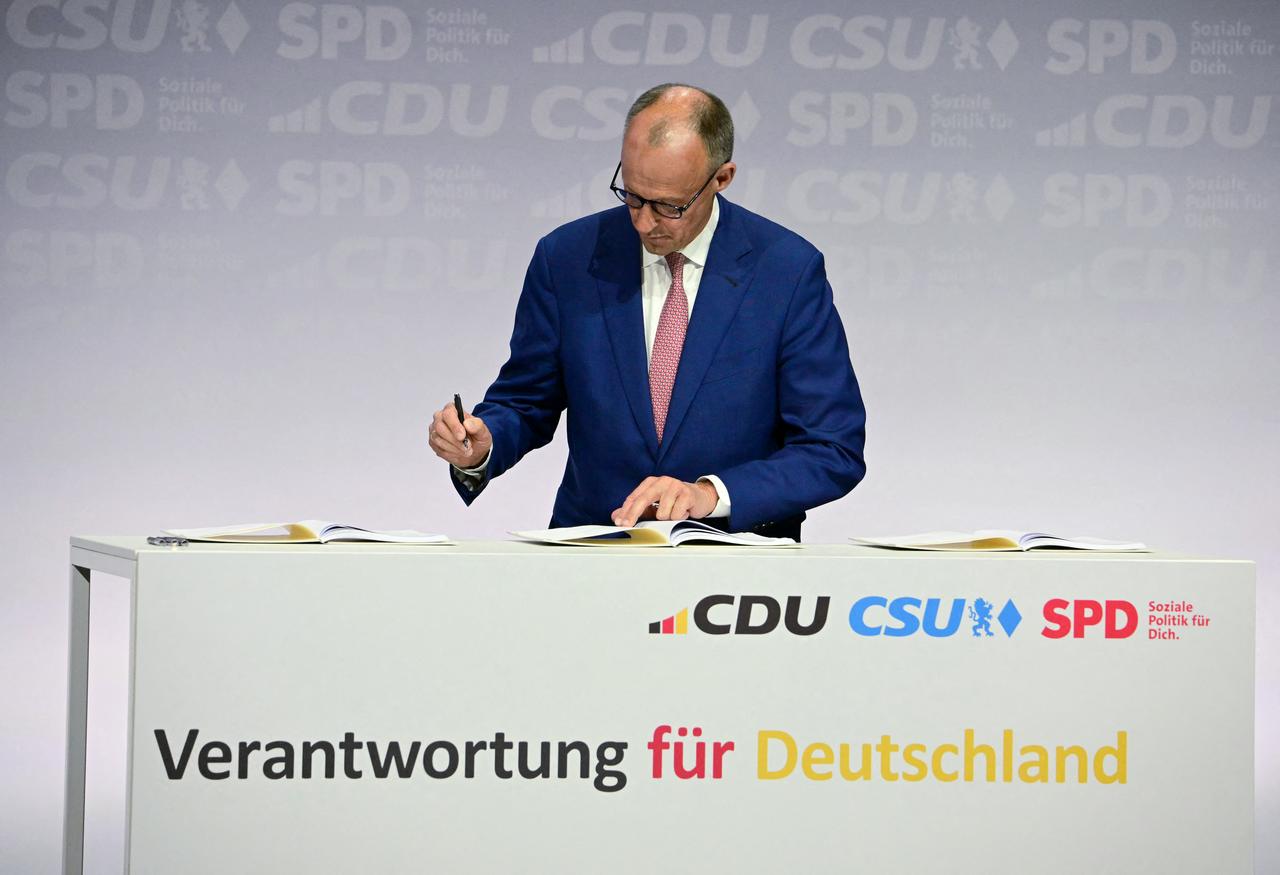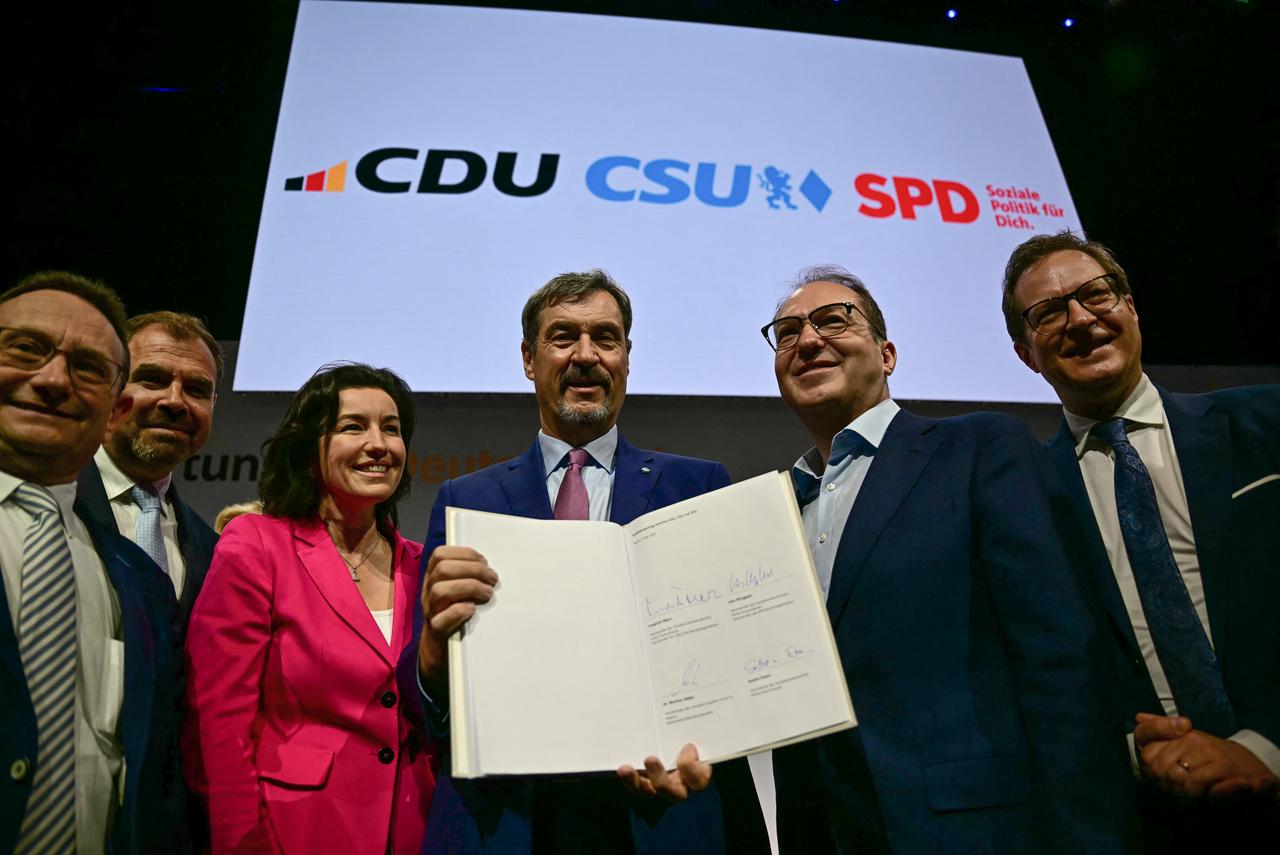
Friedrich Merz formally sealed his ascent to Germany's chancellorship Monday as conservatives and Social Democrats signed their coalition agreement, preparing to tackle economic stagnation and navigate increasingly complex relations with the Trump administration.
The 69-year-old business-oriented leader is set to be sworn in Tuesday as chancellor of Europe's largest economy, ending six months of political uncertainty following the collapse of Olaf Scholz's government last November.
"We live in times of profound change, of profound upheaval... and of great uncertainty, and that is why we know that it is our historic obligation to lead this coalition to success," Merz said at the signing ceremony.
The new coalition government faces the immediate challenge of reversing Germany's economic decline. The country's economy has contracted for two consecutive years, creating urgency for the incoming administration to implement reforms quickly.
The 144-page coalition contract, titled "Responsibility for Germany," outlines the policy agenda for the next four years. Merz emphasized that his incoming government "is determined to move Germany forward with reforms and investments" while also promising "a government whose voice is heard in Europe and the world."
SPD's Lars Klingbeil, who will serve as vice chancellor and finance minister, underscored that "the new government needs real teamwork more than ever" while focusing on economic recovery. His party colleague and co-chair Saskia Esken stressed the importance of restoring "trust in democracy."
CSU leader Markus Soeder, Bavaria's state premier, insisted the new government must start "full-steam ahead" and "convince through performance," reflecting the pressure on the coalition to deliver results quickly.

The coalition formation comes amid fresh tensions with Washington after Germany's domestic intelligence service designated the AfD a "right-wing extremist" party last Friday. The controversial classification has stoked a diplomatic row with the Trump administration.
Vice President JD Vance described the AfD as "the most popular party in Germany," while Secretary of State Marco Rubio characterized the intelligence agency's action as "tyranny in disguise." These statements mark an unusual level of U.S. intervention in German domestic politics.
The AfD, which has been polling neck-and-neck with Merz's CDU/CSU alliance since February's election and occasionally leading, filed a legal challenge Monday against the extremist designation. The party's strong electoral performance has been a source of concern for Germany's mainstream political establishment.
Merz has explicitly vowed to curb irregular migration and halt the rise of the AfD, which secured second place in February's snap general election, making immigration policy a central focus of his incoming administration.

Despite having no prior government leadership experience, Merz projected confidence at Monday's signing ceremony, pledging "strong, well-planned and dependable governance." His first international trip as chancellor will take him to Paris on Wednesday, maintaining the tradition of Franco-German relations as the cornerstone of European politics.
The SPD will retain control of several key ministries in the new government. Defense Minister Boris Pistorius, who has overseen Germany's substantial military support for Ukraine in its war against Russia, will remain in his position. Other SPD ministers will lead the construction, development, environment, and justice portfolios.
The German parliament's lower house will convene Tuesday morning at 9:00 am (0700 GMT) to elect Merz as the country's 10th post-war chancellor. President Frank-Walter Steinmeier will confirm the vote before Merz takes the oath of office at noon (1000 GMT).
A military ceremony Monday evening marked the end of Olaf Scholz's chancellorship, which collapsed on November 6, coinciding with Donald Trump's re-election to the White House. Scholz will not hold a position in the new cabinet but will remain in parliament as a lawmaker.

Merz, who brings a strong business background but lacks experience in government leadership positions, faces the daunting task of managing multiple crises simultaneously. Beyond the economic challenges, his government must rebuild Germany's military capabilities at a time when U.S. President Donald Trump has cast doubt on the future of transatlantic security and trade relationships.
The incoming chancellor will need to balance domestic priorities with international obligations, particularly as questions loom about NATO commitments and trade relations with the United States. His administration takes power at a time when Germany's traditional role in European and global politics faces unprecedented scrutiny.
The coalition between Germany's two traditional big-tent parties comes as an attempt to provide stability after months of political paralysis in Berlin. However, with the AfD's continued strength in opinion polls and economic headwinds, Merz's government faces significant pressure to deliver tangible results quickly to prevent further political fragmentation.